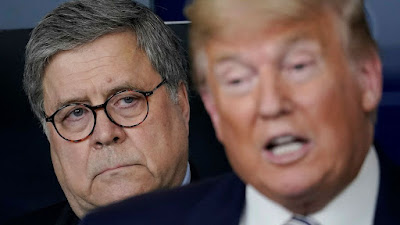The American Bar Association’s Criminal Justice Section has released its annual report,
The State of Criminal Justice 2021, examining major issues, trends, and significant changes in America’s criminal justice system.
The annual bar publication includes a chapter devoted to significant developments in capital punishment, authored by Ronald J. Tabak, chair of the Death Penalty Committee of the ABA’s Section of Civil Rights and Social Justice and a longtime member of the Steering Committee of the ABA’s Death Penalty Representation Project. Tabak’s analysis highlights the effects of the Trump administration’s unprecedented federal execution spree, the historic repeal of capital punishment in Virginia, the impact of the COVID-19 pandemic on the continuing long-term downward trend in death sentences and executions across the U.S., and the decrease in public support for capital punishment.
“After 17 years in which the federal government did not execute anyone, it executed 13 people between July 2020 and January 15, 2021 — including 3 in the final full week of President Trump’s term,” Tabak writes. He argues that the “unprecedented” execution spree “accelerated the public’s already increased understanding of major systemic problems with capital punishment,” energizing opposition to capital punishment and joining with the emergent racial justice movement to contribute to the repeal of Virginia’s death penalty. Tabak notes that the lead Senate sponsor of Virginia’s repeal bill called the link between racial terror lynchings and the death penalty’s advent “undeniable,” and Governor Ralph Northam cited the Commonwealth’s extensive history of racial discrimination in the use of capital punishment as one of the key reasons to abolish it.
Racial justice efforts also received a boost in North Carolina, Tabak wrote, with several decisions by the North Carolina Supreme Court barring the state legislature’s attempt to retroactively repeal rights granted to the state’s death-row prisoners under the North Carolina Racial Justice Act. The court’s actions restored grants of relief trial courts had issued to 4 death-row prisoners as a result of the role of racial discrimination in their trials and allowed Racial Justice Act claims to move forward for more than 140 other cases.
Tabak reports that before the pandemic hit in March 2020, “new state death sentences were trending lower than the total of 34 in 2019 and ended the year at 18,” the lowest in any year during the modern era of the death penalty. However, the extent of the decline in 2020 was due in part to “the effect of the pandemic on courts, judges, police, court officers, and witnesses for both sides,” which halted capital trials and other proceedings in capital cases. Executions by states were also continuing their long-term downward trend early in 2020 even before they stopped altogether in July 2020 because of the pandemic.
Tabak’s capital punishment chapter also discusses the continued downward trend in public support for the death penalty. National poll results, he writes, reflect that “[p]ublic support for the death penalty had declined to its lowest level in decades, and for the 1st time, when Gallup asked whether the public preferred capital punishment or life without parole (LWOP), LWOP was selected by a significant majority.”
Tabak attributes the decrease in public support for capital punishment to the “greater appreciation of major problems with the death penalty’s implementation,” especially after the dramatic federal execution spree. “Increasingly, the death penalty in practice has been attacked by people who have served in the judiciary or law enforcement, taken part in executions, written death penalty laws, or are politically conservative,” as well as several influential religious leaders, he wrote.
The past year also brought about “enhanced public support for the concept that Black lives matter,” which Tabak says has further sparked awareness of and outrage about the racial bias inherently linked to the death penalty. The chapter also contains sections devoted to recent exonerations, questionable executions, and major court decisions in capital cases.
Tabak ends the chapter with a discussion of the future of the death penalty. He argues that capital punishment in the United States can be justified “only if one believes in arbitrarily and capriciously applied, highly erratic vengeance.” Ultimately, he concludes, “[O]ur society must decide whether to continue with a penalty implemented in ways that cannot survive any serious cost/benefit analysis.”
🚩 | Report an error, an omission, a typo; suggest a story or a new angle to an existing story; submit a piece, a comment; recommend a resource; contact the webmaster, contact us:
deathpenaltynews@gmail.com.
Opposed to Capital Punishment? Help us keep this blog up and running! DONATE!
"One is absolutely sickened, not by the crimes that the wicked have committed,
but by the punishments that the good have inflicted." -- Oscar Wilde












